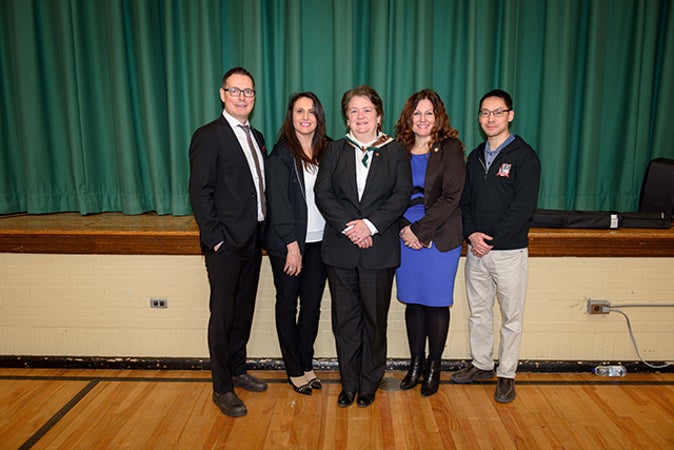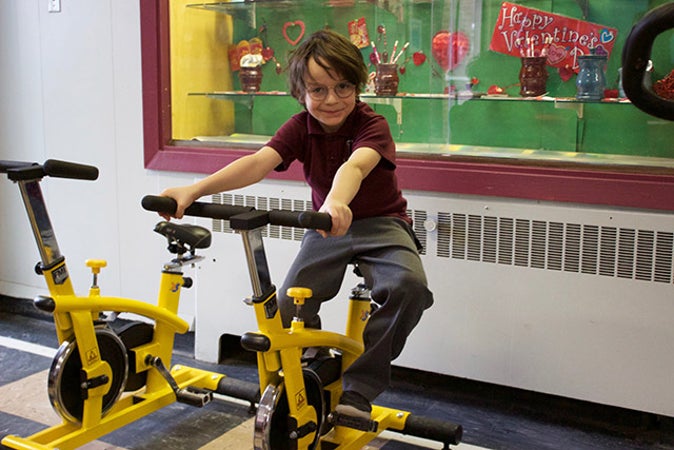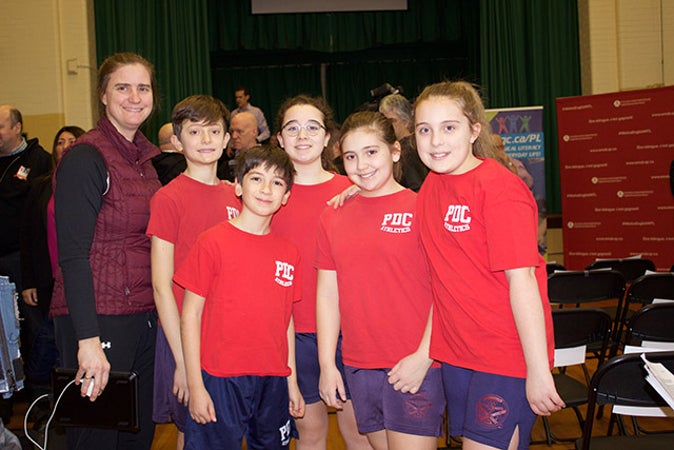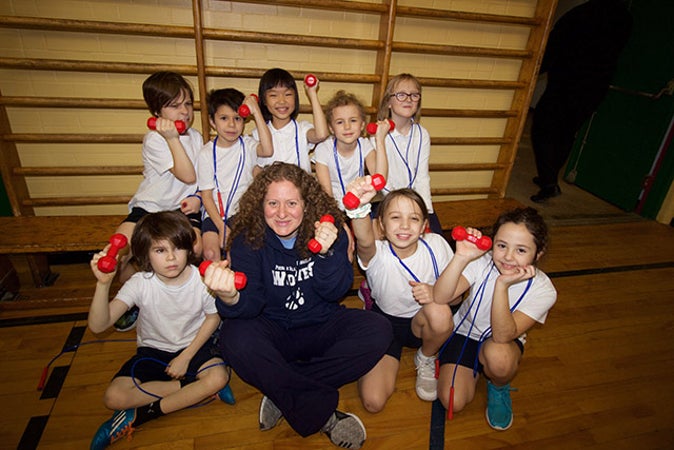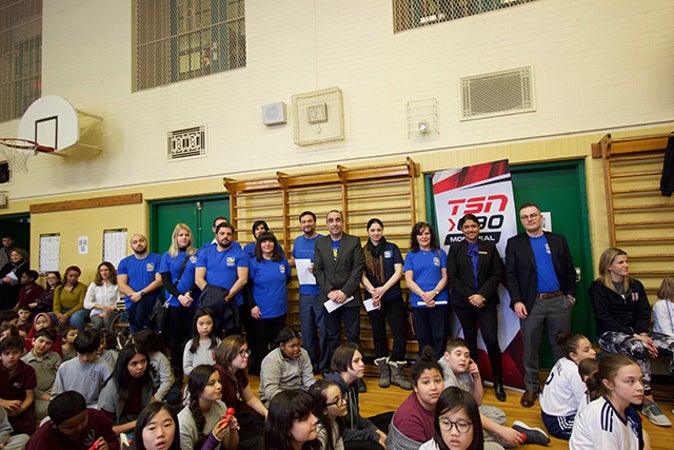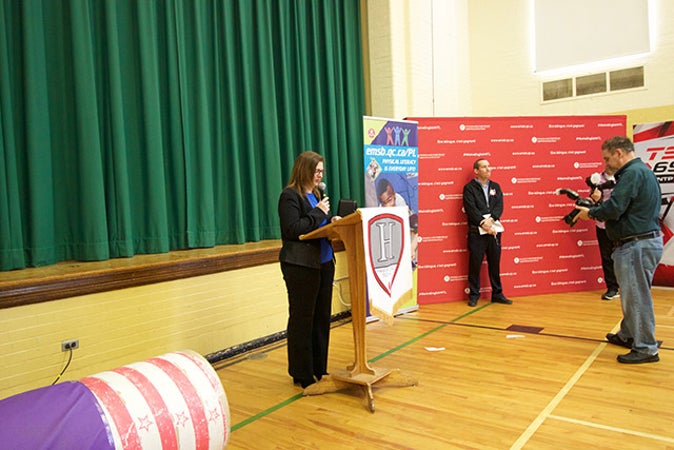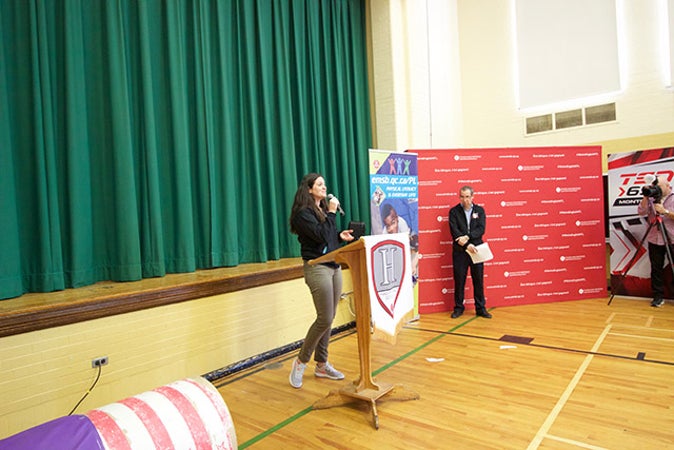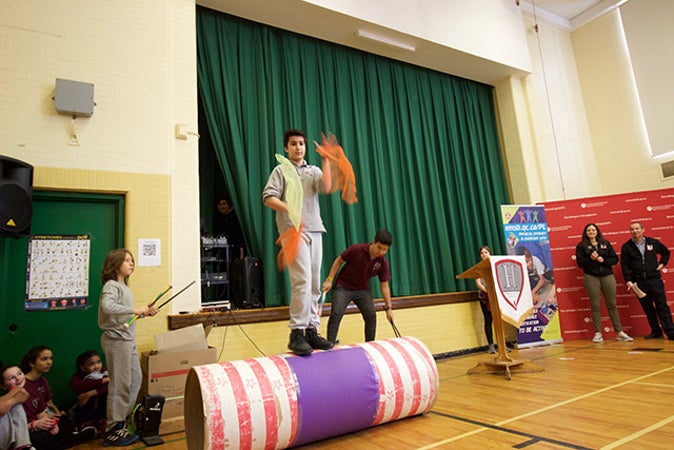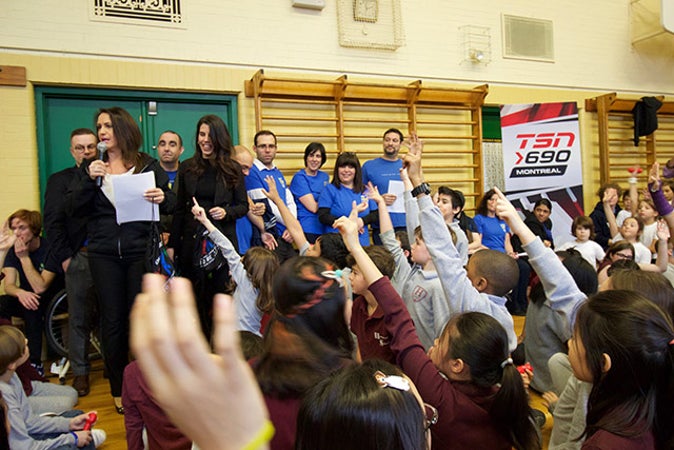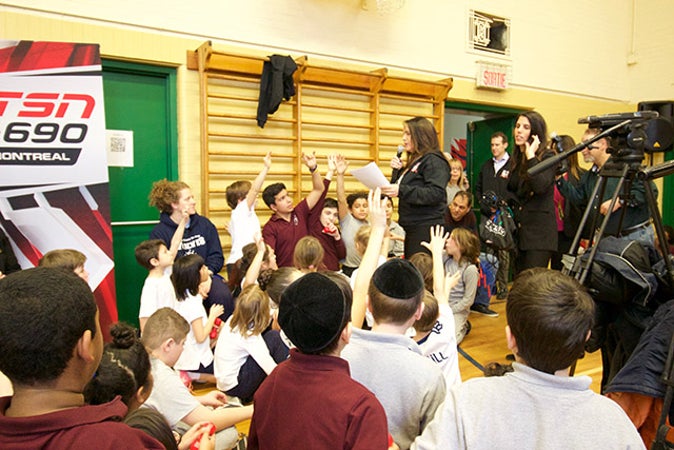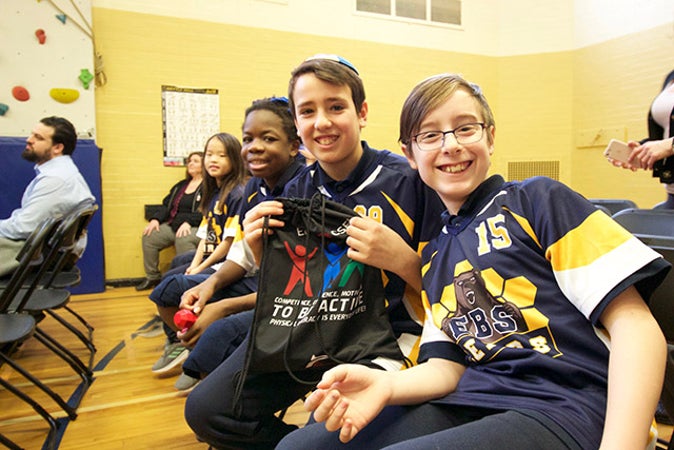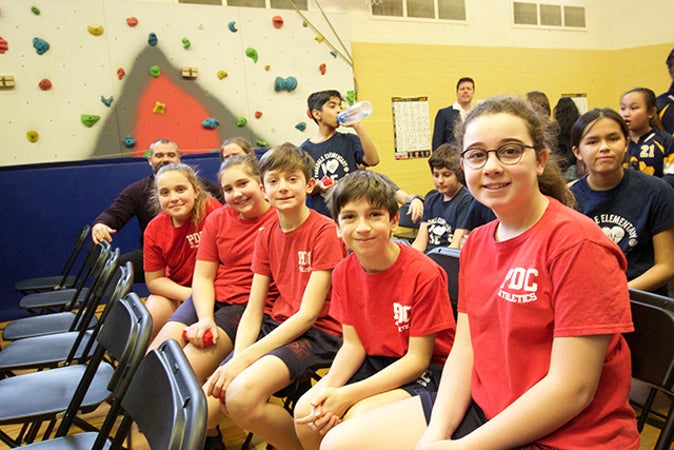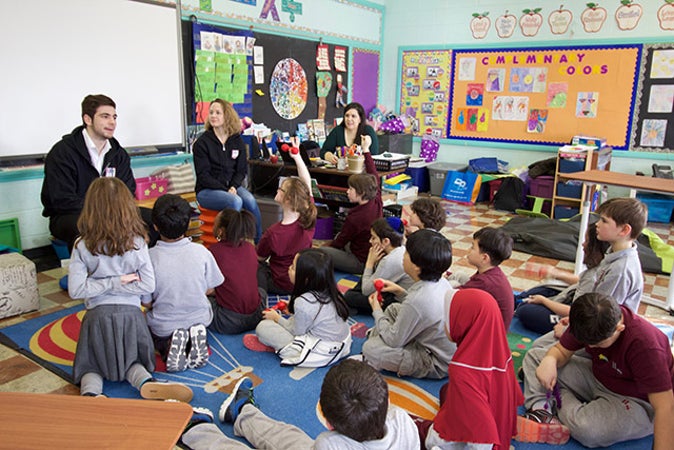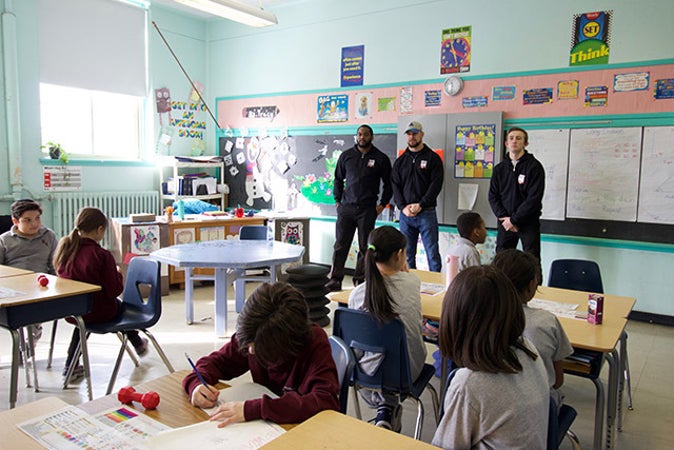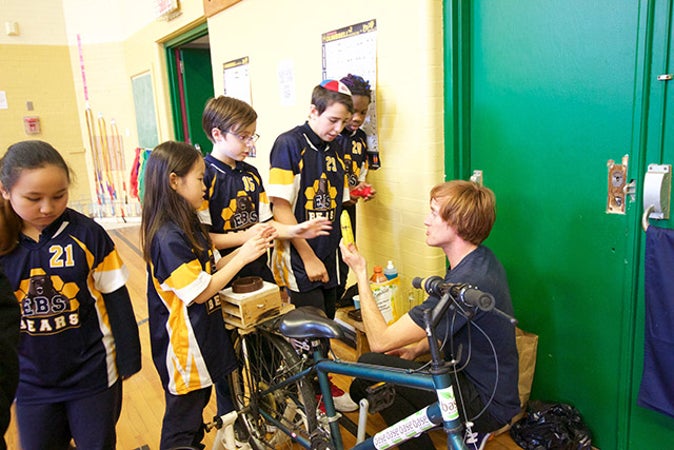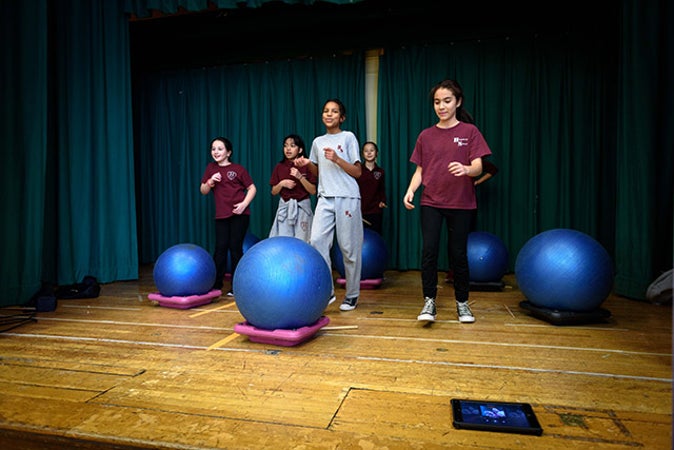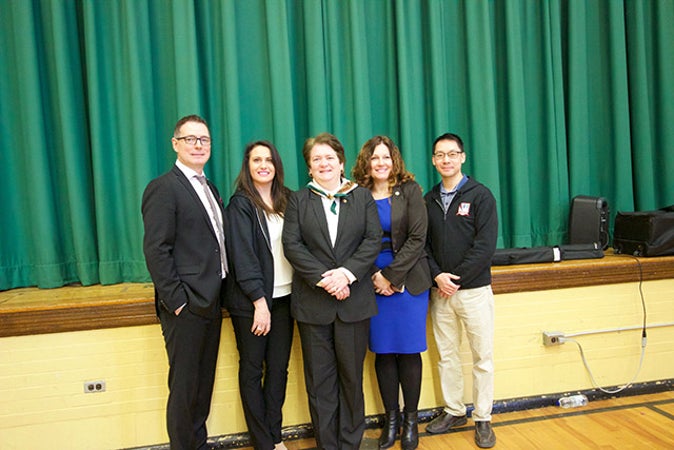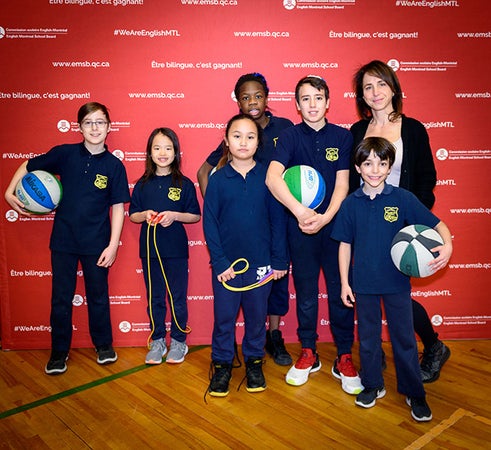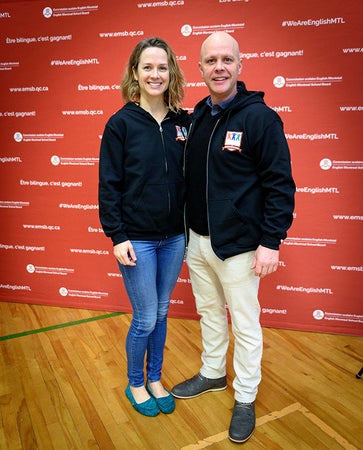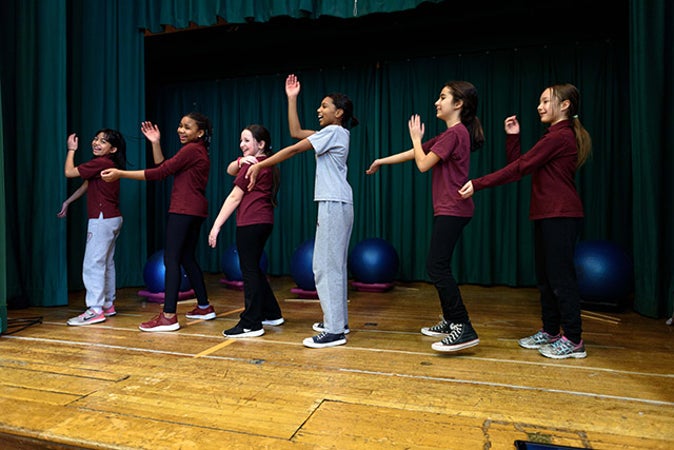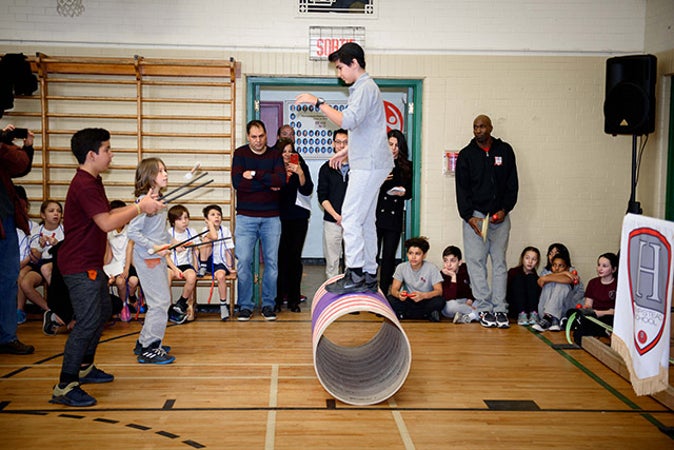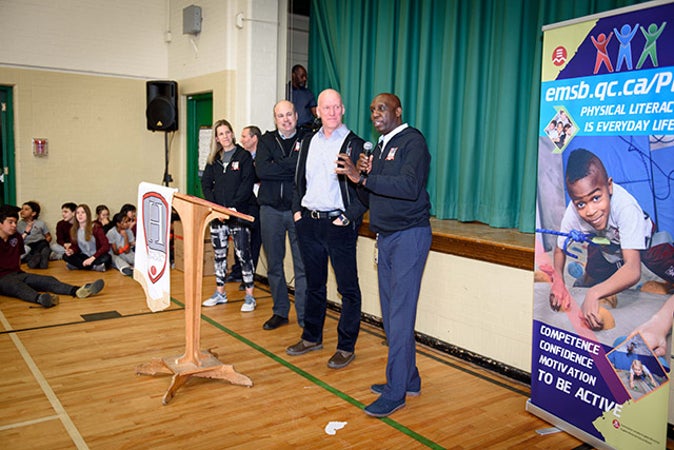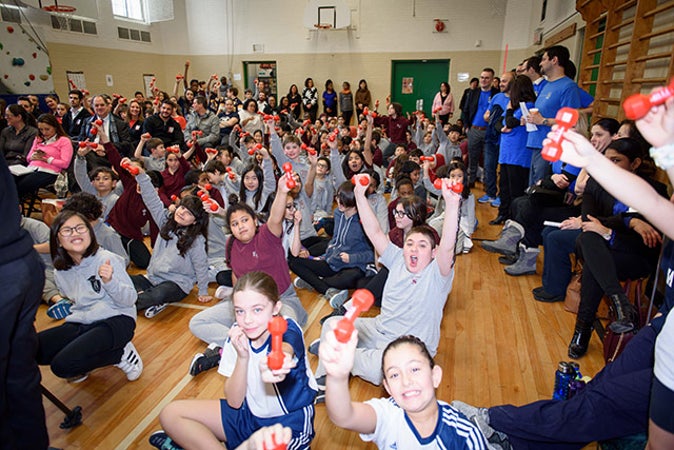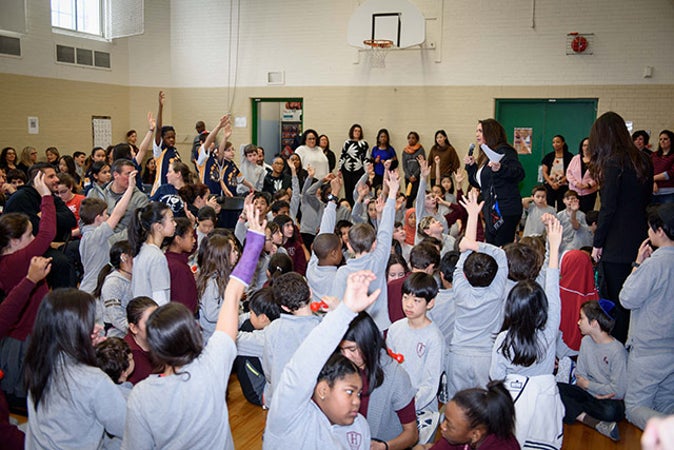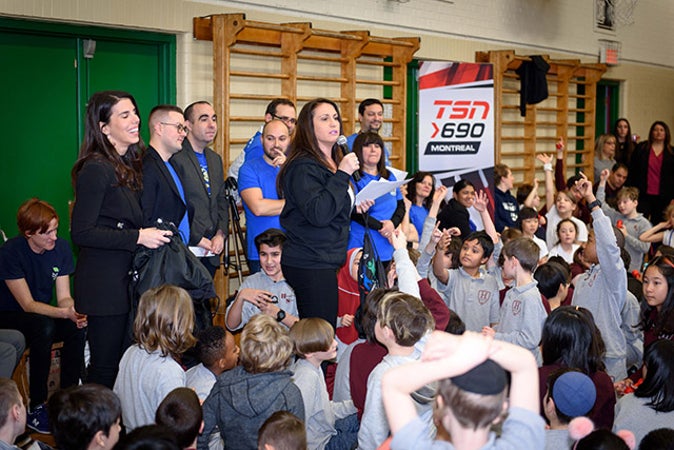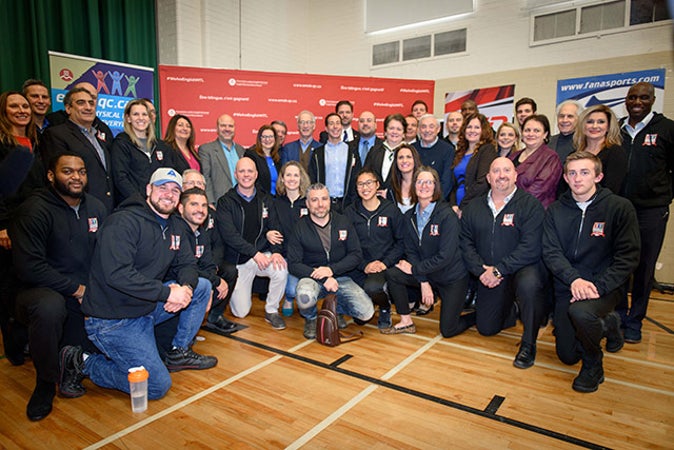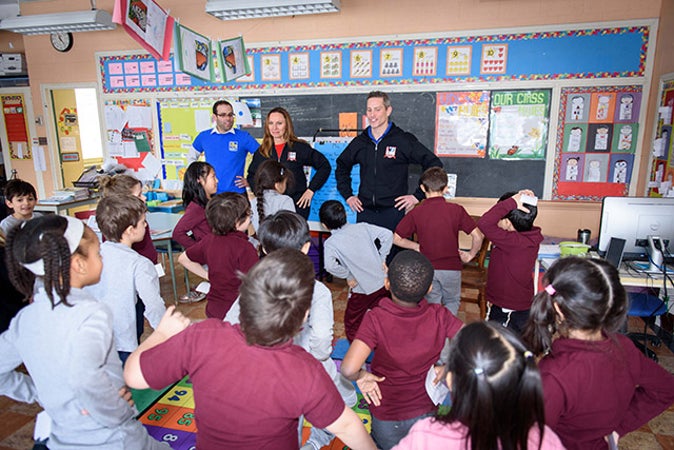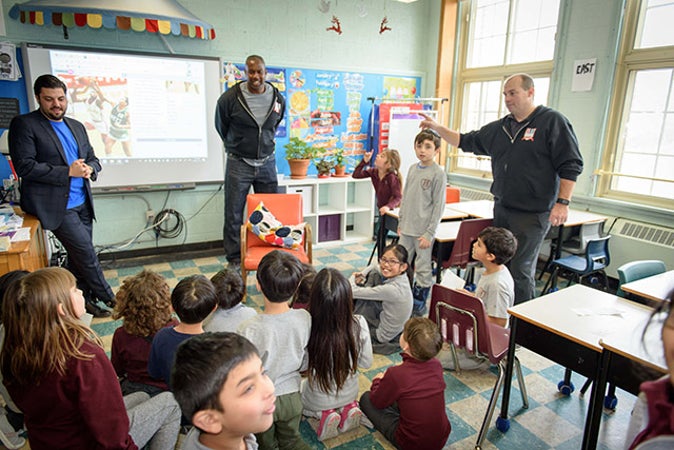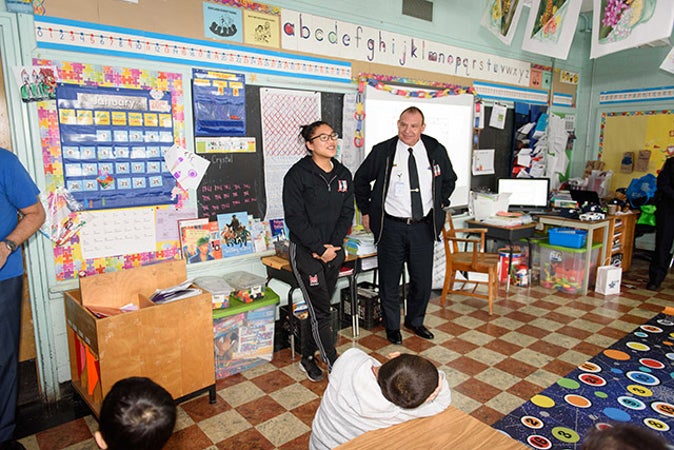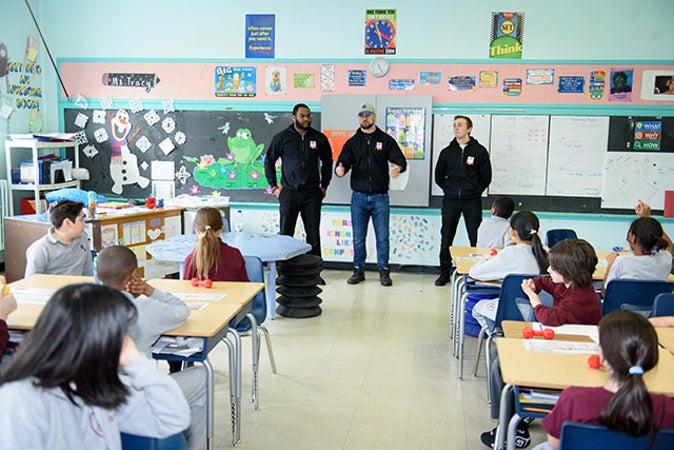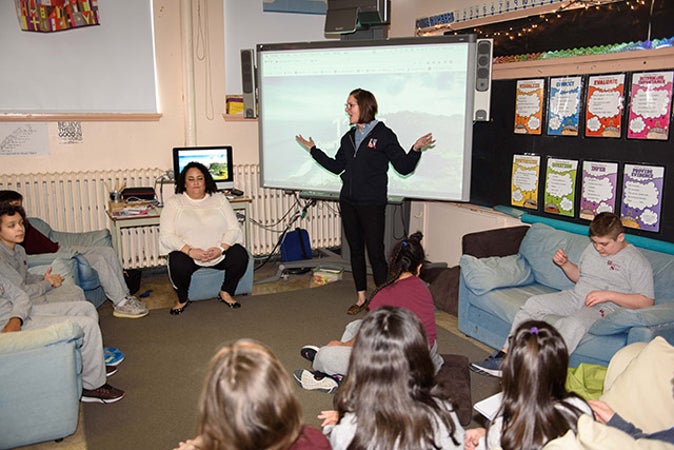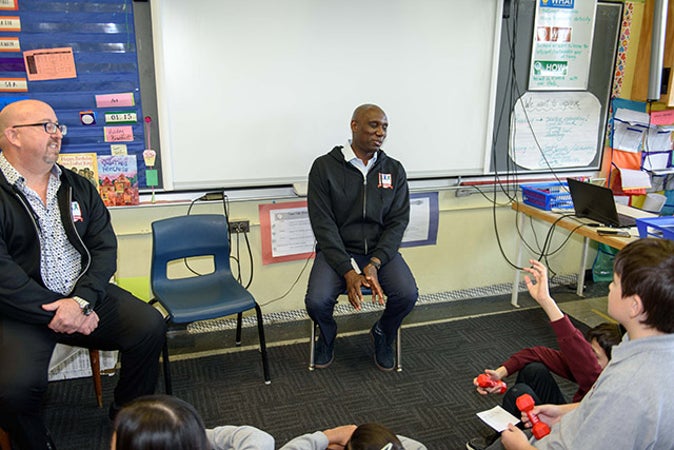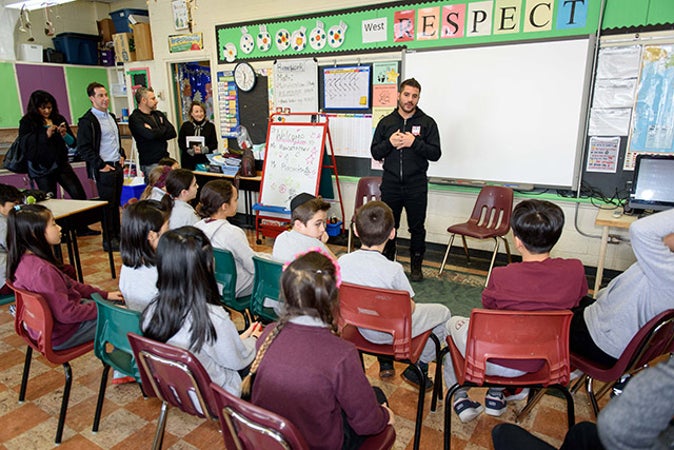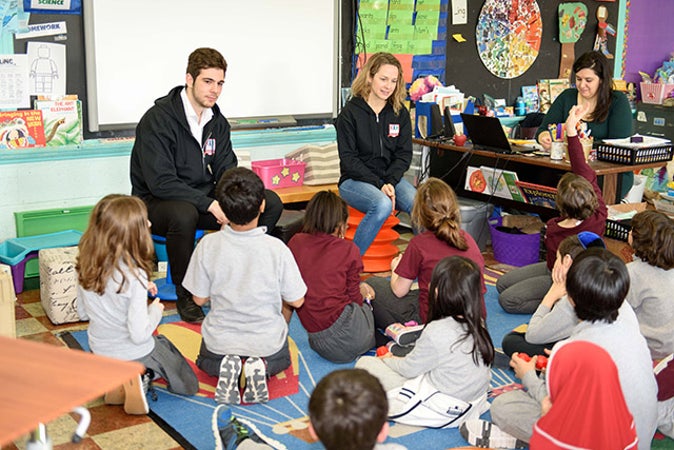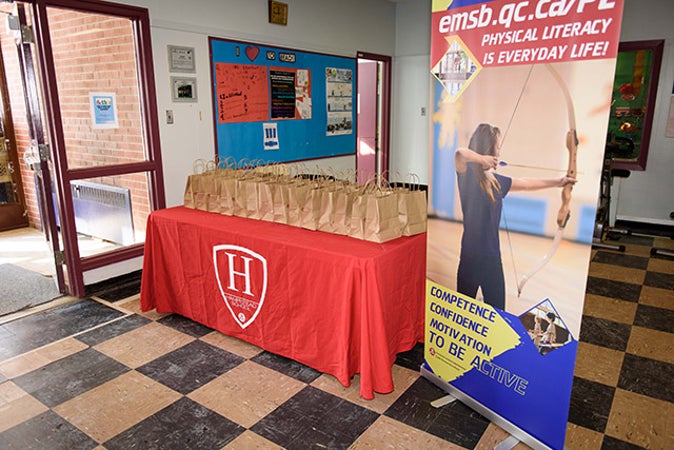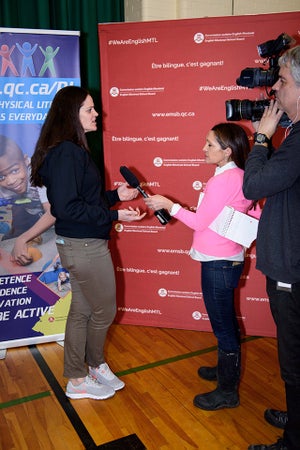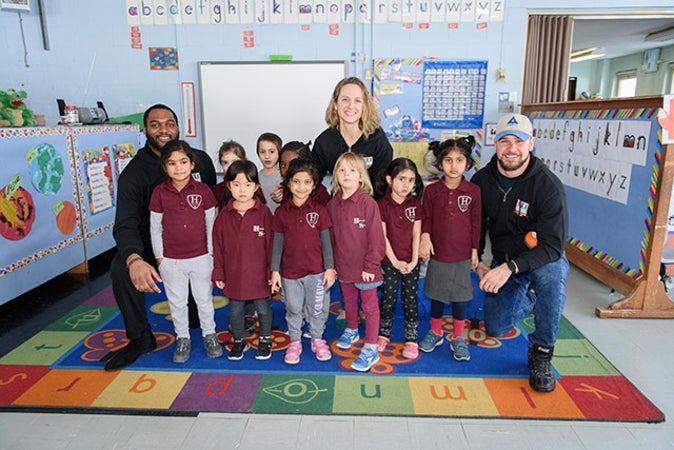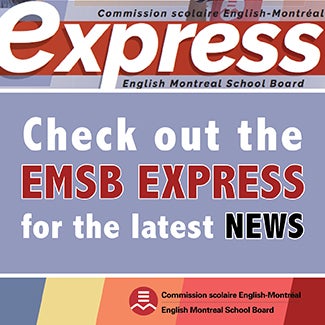Physical Literacy is Everyday Life – giving students more opportunities to develop movement skills to broaden horizons
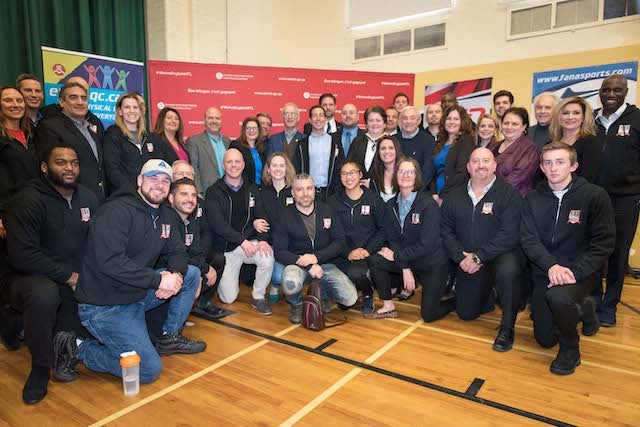
On the eve of Kindergarten and Elementary School Registration Week (February 4 to 8), the EMSB showcased its programs that support the development of physical literacy.
Special guests, media and small contingents of students from six EMSB schools were invited to Hampstead Elementary School to learn more about physical literacy through numerous activities and presentations on the subject. Hampstead School is one of the elementary institutions which has assumed a leadership role in this area.
What is physical literacy?
Physical literacy is about developing the competence, confidence and motivation to be active in a variety of ways and environments. The idea is that by being confident in physical activity, students benefit in their overall physical, mental and emotional health. Physical Education plays a critical role in developing physical literacy – in Phys. Ed. classes, students develop their movement competence, and Physical Education teachers are also careful to structure their classes to encourage confidence and motivation, two important components of physical literacy. The benefits of regular physical activity are already well documented: sustained long-term health, increased social connectedness, improved general mental and physical well-being and better quality of life. But children who are more physically literate have more access to these benefits, which is central to their success as students.
The EMSB’s strength in physical literacy rests on four pillars: its robust Physical Education and Health programs, its “60 Minutes of Daily Physical Activity” program (based on the Quebec government initiative À l’école, on bouge!), its avid participation in
The EMSB strives to help all students achieve success, and supporting the development of physical literacy through various programs is an important pathway to this goal. What’s more, more movement in the school day is usually accompanied by more fun and engagement in the classroom.
How EMSB supports physical literacy
Students all across EMSB schools have many physical activity options throughout their schooling. The most foundational is the Physical Education and Health program in each school. During these classes, students develop fundamental movement skills such as throwing, running, jumping, balancing and kicking. These skills are the building blocks of physical literacy, and throughout 11 years of Physical Education and Health in EMSB’s elementary and secondary schools, students learn to apply them in a variety of physical activity settings. They also learn tactics and strategies needed to apply these skills in a number of different sports and activities. Most importantly, they are provided
In addition to Physical Education and Health, non-competitive options of extra-curricular activities include outdoor education in hiking, camping, skiing, snowshoeing, canoeing, biking and rock climbing. Through the Greater Montreal Athletic Association school
The EMSB recognizes the impact that a quality physical and health education can have on students’ success and overall well-being. Some of the ways in which the board ensures strong support for this subject area
- It is the only English board that has a full-time Physical Education and Health Consultant;
- An annual grant, Keeping the Physical Education, provides schools with funding to purchase equipment that allows them to offer a varied Physical Education program;
- A Professional Improvement System allows teachers to apply for funding to bring in presenters so that multiple physical education and health-specific workshops are offered annually;
- Technology funding is provided to support learning in Phys. Ed. classes, such as 15 recently installed SMART Panels in EMSB gymnasiums;
- Active participation by EMSB Phys. Ed. and Health teachers in projects help develop curriculum and teacher resources that are shared and presented provincially and nationally;
- Collaboration between EMSB’s Educational Services department and Student Services (autism consultants and occupational therapists) provides workshops and support to enable Physical Education and Health teachers to offer the best possible program for students with special needs.
A variety of physical activity experiences
Within Physical Education and Health classes, EMSB schools expose students to a variety of physical activity experiences. Students develop different physical competencies such as circus-act skills, jump-rope skills, throwing skills, game tactics, fitness skills or gymnastics. They also learn about fair and inclusive behaviour,
Special day at Hampstead
Special celebrity ambassadors were on hand January 25. Each visited different classrooms to see the variety of ways that movement is incorporated throughout the school day at Hampstead Elementary.
Hampstead School was chosen to host the special event because it is a leader in increasing opportunities for movement throughout the school day, as well as ways for students to be active in the outdoors. On a daily basis, students can take “brain breaks,” where a hallway pass provides permission for a single student or a pair to leave the classroom to engage in a short period of physical activity in the hallway, such as passing around a soft football or soccer ball. Similarly,
The school is also set apart by the fact that it offers 160 minutes a week of physical education for Kindergarten students (who have a class every day), compared to the more standard 120 minutes a week. Grades 1 to 6
Hampstead has also established an extensive equipment distribution system for recess and lunch play that gives students access to equipment for outdoor games and sports. Finally, Hampstead is one of the 15 EMSB schools to participate in the “60 minutes of daily physical activity” program. Schools participating in this program commit to providing the opportunity for all students to accumulate 60 minutes of physical activity during every school day.
Listen to the CBC Radio Noon show on this initiative: https://www.cbc.ca/listen/shows/radio-noon-montreal/episode/15666468

